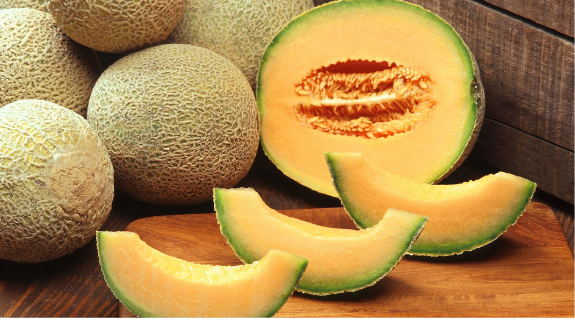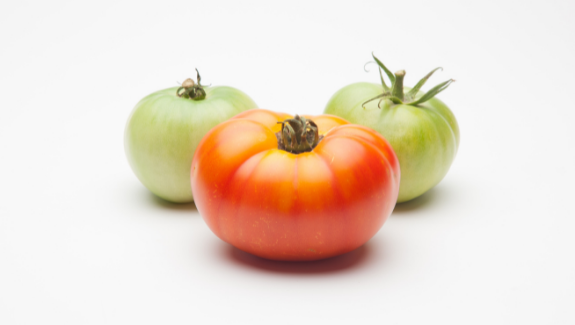
What Fruits Can Dogs Eat?
March 11, 2022As a pet owner, you might want to spoil your fur baby to eat whatever they want. They’re giving you “puppy-eyes'' to trick you into giving them table scraps. It’s really hard to say no. Eating the wrong foods can make dogs sick and, in some cases, even kill them. Dogs digest food differently than humans, and the wrong foods can lead to long-term health issues and death.
Can Dogs Eat Fruit?
Eating fruits can be beneficial for our fur babies. In order to prevent dogs from having digestive issues, it’s important to know which fruits dogs can eat.
Here’s a list of fruits your dog can eat, as well as those they shouldn’t eat.
List of Fruits that Dogs Can Eat
Apples

It’s a good thing that dogs can eat apples. The vitamins C, A, potassium, and antioxidants in apples are excellent for your dog’s health. Senior dogs will especially enjoy the low protein and fat content of these treats. Before you give your dog these treats, remove the cores and seeds. Try freezing them for an ice-cold treat in warm weather.
Bananas
Bananas can provide dogs with low-calorie treats if consumed in moderation. Potassium, vitamins, biotin, fiber, and copper are all present in healthy amounts. Despite their low cholesterol and sodium content, bananas should always be given as a treat to your dog, not served as part of his regular diet because of their high sugar content.
Blueberries

Humans and dogs benefit from blueberries because they are packed with antioxidants that prevent cell damage. They're also high in fiber and phytochemicals. Does your dog like catching treats in the air? Try blueberries!
Cantaloupe

In addition to being high in nutrients, cantaloupe is low in calories and a good source of water and fiber. This treat is high in sugar, so it should be given to overweight or diabetic dogs in moderation.
Cranberries

In small quantities, both dried cranberries and fresh cranberries are safe for dogs to consume. When feeding cranberries to dogs, moderation is key, as too many cranberries can upset their stomachs.
Cucumbers

A cucumber can boost your dog's energy levels, which is great for overweight dogs since cucumbers contain little to no carbohydrates, fats, or oils. They are a great source of vitamins K, C, and B1, as well as potassium, copper, magnesium, and biotin.
Mango
Vitamins A, B6, C, and E are all present in this fruit. Additionally, they contain potassium and beta-carotene, and alpha-carotene. Remember to remove the pit from most fruits first, as it contains cyanide and can choke your dog. Use Mango as an occasional treat as it has a high sugar content.
Oranges
A small amount of the orange's juicy flesh is a tasty treat for your dog, and oranges are rich in Vitamin C, potassium, and fiber. Veterinarians recommend tossing the orange peel and giving your dog only the flesh, without seeds.
Peaches

In moderation, fresh or frozen peaches are a great source of fiber and vitamin A and can even help fight infections. However, the pits of peaches contain cyanide, just like cherries. Fresh peaches are a great summer treat, as long as you completely cut out the pit first. You should not buy canned peaches as they contain high sugary syrups.
Pears

Pears are a good snack because they're high in copper, vitamin C, and vitamin K. Remove the seeds and pit from pears before giving them to your dog, as the seeds contain cyanide. Avoid canned pears with sugary syrups.
Pineapple
The prickly outer peel and crown of pineapple should first be removed before feeding it to your dog. Packed with vitamins and minerals, pineapple is also rich in fiber. Additionally, it contains bromelain, an enzyme that makes proteins easier for dogs to absorb.
Raspberries
They are rich in antioxidants, which are beneficial to dogs but should be taken in moderation. Raspberries have low sugar and calories but are high in fiber, manganese, and vitamin C. They have anti-inflammatory properties, which can benefit senior dogs with arthritic joints. There is however a small amount of xylitol in raspberries, so try to feed your dog less than one cup of raspberries at a time.
Strawberries
Strawberry fruits are high in fiber and vitamin C. Plus, they contain an enzyme that can help whiten the teeth of your dog as they consume them. You should limit their consumption due to their high sugar content.
Watermelon
You need to remove the seeds and rind before feeding them to your dog since they can cause intestinal blockage. Otherwise, watermelon flesh is safe for dogs. Potassium and vitamins A, B-6, and C are all present in them. As 92 percent of a watermelon is water, it's an ideal way to keep your dog hydrated on hot summer days.
List of Fruits that Dogs Can't Eat
Avocado
Even though avocados are healthy snacks for dog owners, they shouldn't be fed to dogs. Avocados contain the toxin persin, which often leads to vomiting and diarrhea in dogs. While the fleshy interior of the fruit does not contain as much persin as the rest of the plant, it is still too much for dogs.
Cherries
Cherry plants contain cyanide, except for the fleshy part around the seed, and are toxic to dogs. Cyanide obstructs the transfer of oxygen through cells, so your dog's blood cells cannot get enough oxygen. Symptoms of cyanide poisoning may include dilated pupils, difficulty breathing, and red gums.
Grapes

No matter the breed, age, or sex of the dog, grapes, and raisins (dried grapes) have proved to be very toxic to dogs. The grape is so toxic that it can cause acute sudden kidney failure. Do not let your dog eat this dangerous fruit.
Tomato

Dogs are generally safe from eating ripened tomatoes, but green tomato parts contain a toxin called solanine. Despite the fact that a dog would have to eat a large number of tomatoes to become ill, it's better to skip tomatoes altogether just in case.
Why is it important to know what fruits can dogs eat?
Knowing which foods are safe for your dog is a must for every pet owner. Some foods can greatly harm your dog’s health while others help them become even more healthy. Incorporating nutritious and safe fruits is a great way to spice up your dog’s meal while promoting good health.
Did you know that there are some plants that are harmful to our pets? Check out our article Top 9 Toxic Household Plants for Pets
